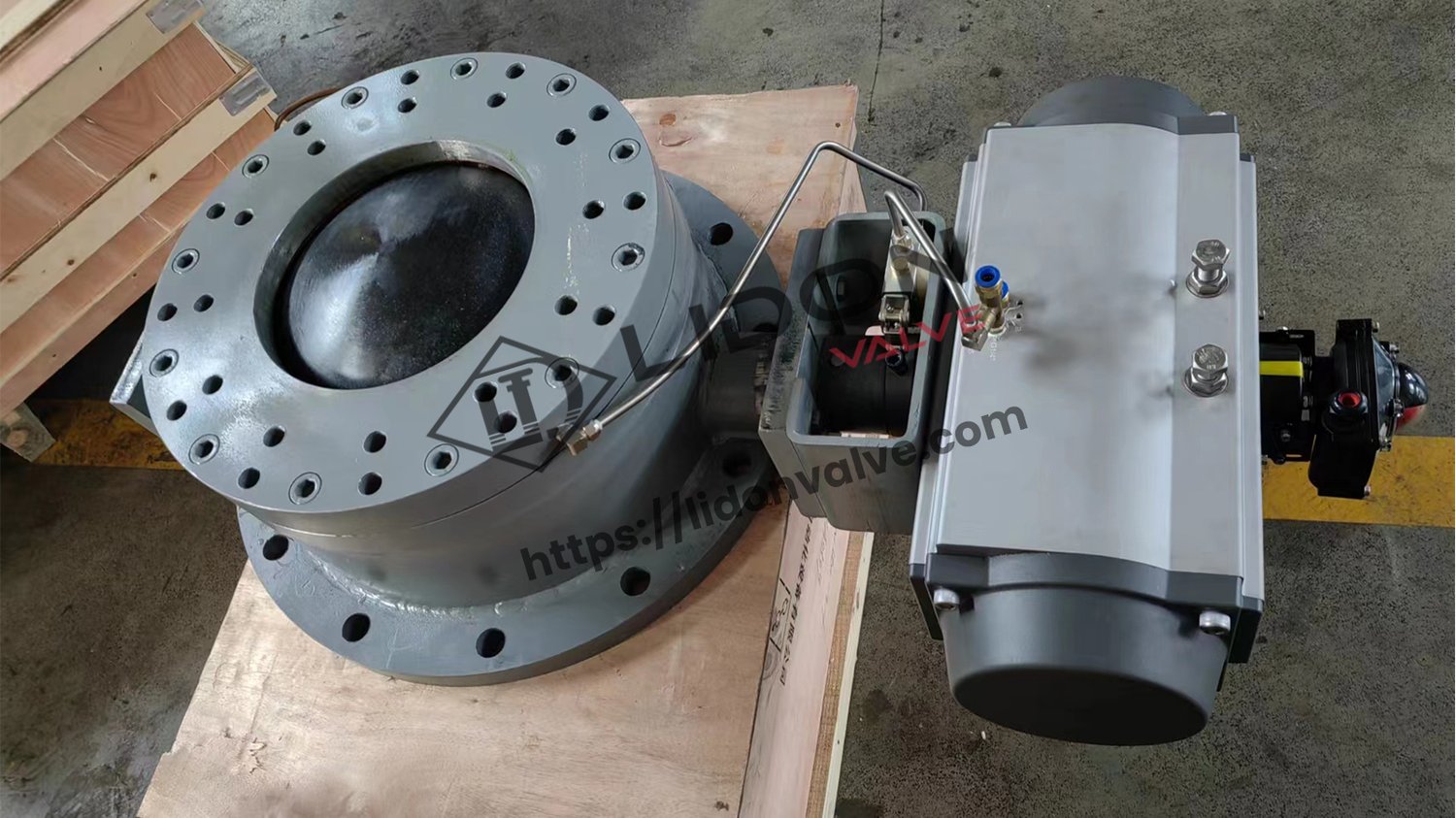What is a dome valve?? An In-Depth Explanation
A dome valve, also known as a dome-type valve or a pressure dome valve, is a specialized type of valve used in various industries for controlling the flow of materials such as powders, granules, and slurries. Its unique design and operating principle make it particularly suitable for handling abrasive, sticky, and difficult-to-handle substances. In this article, we will explore the working mechanism, applications, advantages, and considerations of dome valves.
A Closer Look at the Working Mechanism of Dome Valve
The working mechanism of a dome valve is what sets it apart from other types of valves. A dome valve consists of a dome-shaped elastomeric diaphragm that is positioned between the valve body and a spherical plug. When the valve is open, the dome-shaped diaphragm is inverted, creating a dome-like cavity between the diaphragm and the plug. This cavity allows materials to flow freely through the valve.
When the valve needs to be closed, the actuator applies pressure to the plug, forcing it against the diaphragm. This pressure causes the diaphragm to stretch and form a seal against the valve body, effectively shutting off the flow of materials. The plug, being spherical, evenly distributes the force across the diaphragm, ensuring a reliable and tight seal.
Applications of Dome Valves
Dome valves find applications in a wide range of industries, including:
1. Power Generation
In power plants, dome valves are commonly used for handling materials such as fly ash, coal, limestone, and gypsum. The ability of dome valves to handle abrasive and high-temperature materials makes them ideal for this industry.
2. Mining and Mineral Processing
Dome valves are widely used in mining and mineral processing operations for handling various materials such as ores, concentrates, and tailings. Their ability to handle high solids content and abrasive materials makes them a popular choice in these industries.
3. Chemical and Pharmaceutical Industries
In the chemical and pharmaceutical industries, dome valves are used for handling powders, granules, and slurries. Their ability to provide a tight seal and prevent contaminations makes them essential for maintaining product quality and safety.
4. Food and Beverage Processing
Dome valves are also utilized in the food and beverage processing industry for handling ingredients, additives, and bulk materials. Their hygienic design and ease of cleaning make them suitable for applications where cleanliness is crucial.
Advantages of Dome Valves
Dome valves offer several advantages over other types of valves:
1. Excellent Sealing Performance
The dome-shaped diaphragm and spherical plug design of dome valves ensure excellent sealing performance, even in high-pressure and high-temperature applications. This helps prevent leaks and reduces the risk of material contamination.
2. Minimal Maintenance
Due to their simple and robust design, dome valves require minimal maintenance compared to other types of valves. This leads to reduced downtime and lower operating costs.
3. Superior Flow Control
The unique operating principle of dome valves allows for precise flow control, even with challenging materials. This helps improve process efficiency and reduces material wastage.
4. Resistance to Abrasion
Thanks to their elastomeric diaphragm, dome valves are highly resistant to abrasion, making them suitable for handling abrasive materials without significant wear or damage.
Considerations for Dome Valve Selection
When selecting a dome valve for a specific application, several factors should be considered:
1. Material Characteristics
Understanding the properties of the material to be handled, such as particle size, abrasiveness, and flow characteristics, is essential for selecting the appropriate dome valve design and materials of construction.
2. Operating Conditions
The operating temperature, pressure, and flow rate are crucial factors to consider when selecting a dome valve. These parameters will help determine the valve's size, materials, and actuation requirements.
3. Maintenance and Accessibility
Considering the ease of maintenance and accessibility for inspection and repairs is important to ensure smooth operation and minimize downtime.
4. Compliance with Industry Standards
Depending on the industry and application, dome valves may need to comply with specific standards and regulations. Ensuring compliance is essential for safety and quality assurance.
Conclusion
In summary, a dome valve is a specialized type of valve that offers excellent sealing performance, precise flow control, and resistance to abrasion. Its unique design and operating principle make it suitable for handling abrasive, sticky, and difficult-to-handle materials in various industries. When selecting a dome valve, considerations such as material characteristics, operating conditions, maintenance requirements, and compliance with industry standards should be taken into account. By choosing the right dome valve for a specific application, industries can optimize their processes, improve efficiency, and ensure product quality and safety.

